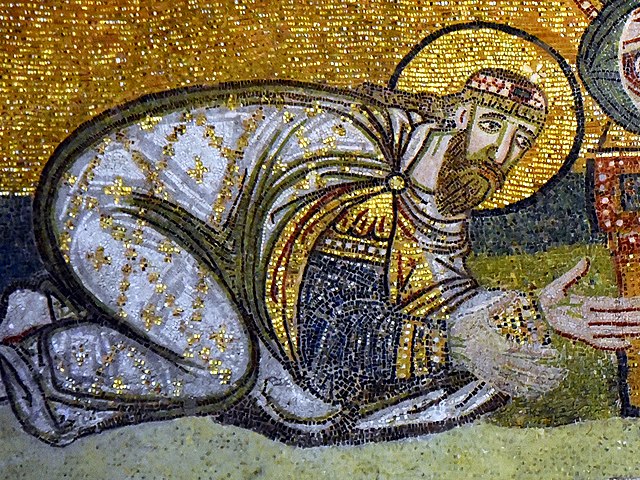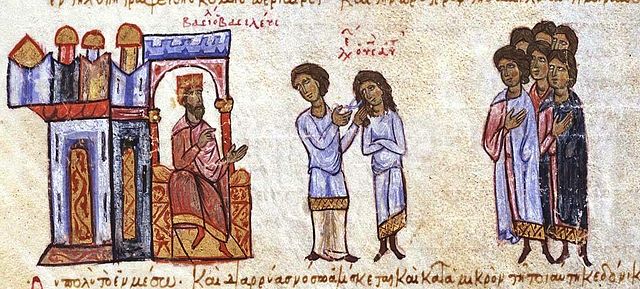The Basilika was a collection of laws completed c. 892 AD in Constantinople by order of the Byzantine emperor Leo VI the Wise during the Macedonian dynasty. This was a continuation of the efforts of his father, Basil I, to simplify and adapt the Emperor Justinian I's Corpus Juris Civilis code of law issued between 529 and 534 which had become outdated. The term comes from the Greek adjective Basilika meaning "Imperial " and not from the Emperor Basil's name; both sharing a common etymology from the term Basileus.
Leo VI (right) and Basil I (left), from the 12th-century Madrid Skylitzes.
Leo VI, also known as Leo the Wise, was Byzantine Emperor from 886 to 912. The second ruler of the Macedonian dynasty, he was very well read, leading to his epithet. During his reign, the renaissance of letters, begun by his predecessor Basil I, continued; but the empire also saw several military defeats in the Balkans against Bulgaria and against the Arabs in Sicily and the Aegean. His reign also witnessed the formal discontinuation of several ancient Roman institutions, such as the separate office of Roman consul.
A mosaic in Hagia Sophia showing Leo VI paying homage to Christ
Leo VI (center) and Basil I (left), from the 11th-century manuscript by John Skylitzes
Gold solidus of Leo VI.
Samonas inciting Emperor Leo against Andronikos Doukas.





